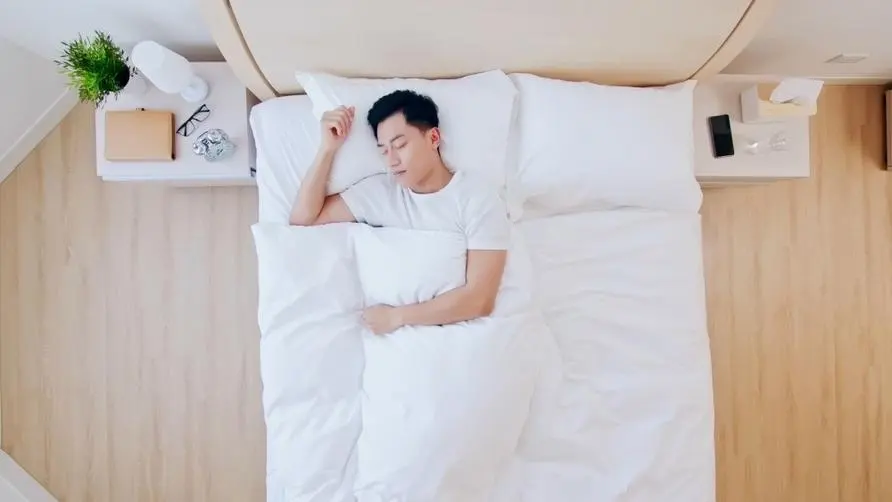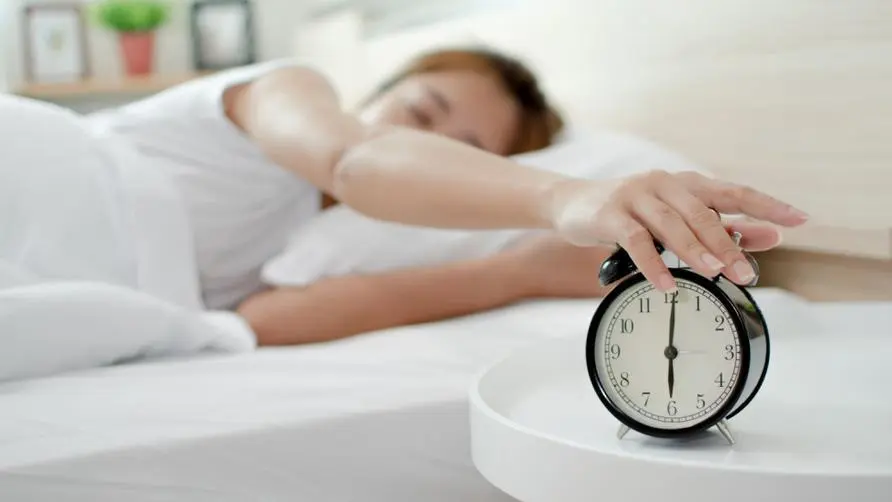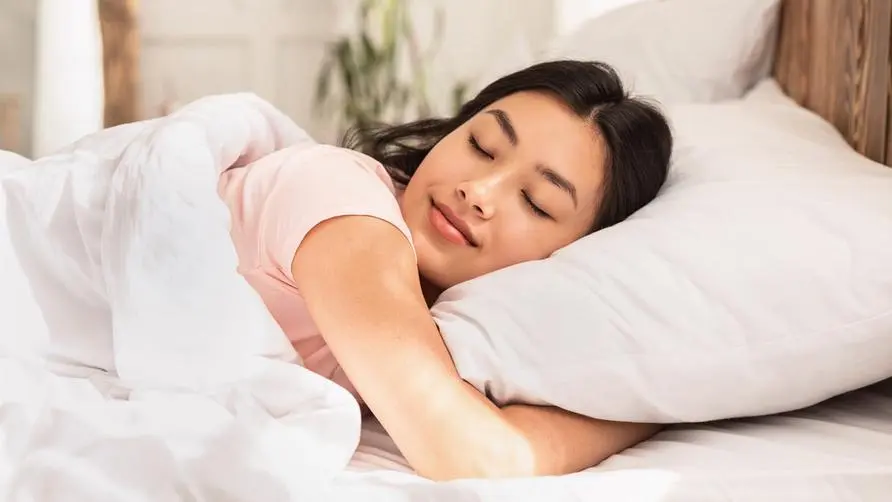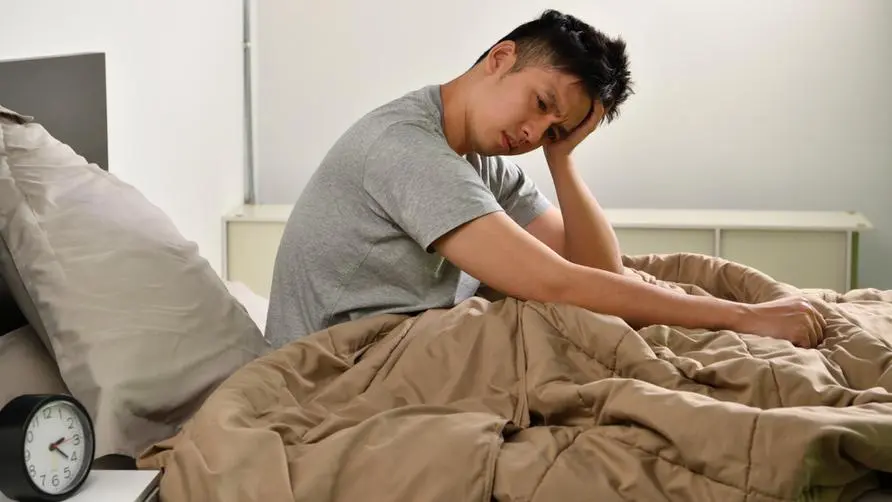Being able to sleep is not the same as "sleeping well"? Doctors clarify: A good night's sleep can only be achieved if "these four points" are met

Being able to sleep is not the same as “sleeping well”? One in 10 people in Taiwan suffers from insomnia!
The third Friday of March every year is “World Sleep Day”, and many Taiwanese people indeed suffer from sleep problems; according to public information from the Taiwan Ministry of Health and Welfare, the prevalence rate of chronic insomnia in Taiwan is as high as 10.7%. More than 1 in 10 people suffer from insomnia. Dr. Chen Caifan from the Family Medicine Department of Luen On Clinic pointed out that many people think that “being asleep” means “having slept well”. In fact, the two are not entirely related.
Dr. Chen Caifan said that the sleep cycle can be roughly divided into “non-rapid eye movement period” (NREM) and “rapid eye movement period” (REM). The non-rapid eye movement period can be further divided into sleep period, light sleep period and sleep stage. There are three major stages: sleep stage and deep sleep stage. The body moves from wakefulness to light sleep and deep sleep, and adjusts body functions during the deep sleep period, such as adjusting growth factors, hormone secretion, and brain detoxification to ensure the synthesis of brain tissue proteins and the replenishment of consumed substances, and finally enters The rapid eye movement (REM) period reorganizes the brain’s memory and accumulates energy for the next day’s activities.
Not only work stress affects sleep quality? Doctor: Only by meeting “these four points” can you have a good night’s sleep
In fact, there are many factors that affect sleep, such as work pressure, family responsibilities, and even illness, which may cause poor sleep quality. Long-term lack of sleep or poor sleep quality will not only increase the risk of cardiovascular diseases or chronic diseases (such as hypertension, diabetes), but may also lead to obesity, depression, cognitive function decline, and immunity decline, with varying degrees of consequences for the body. s damage.
In addition, according to the definition of the Sleep Foundation, good sleep quality should include the following four points:
Sleep for at least seven hours
Go to sleep within 30 minutes after lying down
Do not get up more than once at night, and each time should not exceed five minutes.
You won’t feel tired after getting up
How to improve poor sleep quality? Please take the initiative to make “6 major changes” before going to bed
Although there is a strict definition, there are still many people who judge whether they sleep well or not based on “feeling”. If they feel tired when they get up, or if their sleep is often interrupted, they feel that their sleep condition is poor. . Dr. Chen Caifan pointed out that it may be difficult for people to fully control or change factors that interfere with sleep, but proactively establishing the following six good sleep habits can indeed help improve sleep quality:
Get 7 hours of sleep. Adults must sleep at least 7 hours a day, that is, go to bed 7.5-8 hours before getting up, so that they can give themselves sufficient sleep time. Planning regular bedtime and wake-up times can strengthen the body’s wake-sleep cycle.
Create a good sleep environment. A “sense of ritual” before going to bed is indispensable, such as installing curtains with good light-blocking effects, wearing earplugs, turning on the fan, turning your mobile phone to silent, etc., to create a cool, quiet, and dark external sleeping environment for yourself, which will help increase your sleep quality. Deep sleep time and improve sleep quality. In addition, bathing, stretching, hot compresses, journaling and other exercises can also help relax and calm the body and mind. It is recommended to set an alarm clock and perform a pre-sleep ritual one hour before going to bed to balance the body and mind.
Be mindful of your dietary choices. The closer it is to bedtime, the more important it is to avoid meals that are difficult to digest or that are too large in portion. It is also recommended to avoid cigarettes (nicotine) and caffeine (coffee or other caffeinated drinks) that can interfere with sleep. Although alcohol can make people fall asleep easily, it can interfere with long-term sleep quality and is not recommended.
Limit daytime sleep. Sleep time during the day should not exceed 1 hour. The ideal lunch break is recommended to be between 20 and 30 minutes. If you sleep for too long during the day, it will interfere with falling asleep at night and sleeping quality.
Regular exercise habits. Regular exercise helps strengthen the body’s wake-sleep cycle and improves deep sleep. However, strenuous exercise should be avoided before going to bed, which may destroy the calmness and relaxation needed before going to bed.
Manage stress well. Proactively managing stress and letting worries and anxieties settle before bed can help maintain good sleep. You can start by practicing or trying the most basic methods, such as organizing your thoughts and feelings, setting priorities, arranging tasks for yourself, etc. The long-popular “meditation” activity can also help relieve anxiety. It is a relaxation technique that can be actively practiced and helps sleep.
Dr. Chen Caifan also said that if the insomnia problem still does not improve after taking the above changes, it is recommended to seek diagnosis from a family medicine doctor or a psychosomatic physician to prevent sleep problems from affecting the quality of life. In addition, people can wear smart devices according to their own conditions, or use “sleep detection” to understand their sleep status and more objectively review sleep quality. “Sleeping means sleeping well” will no longer be a dream.
Extended reading:





